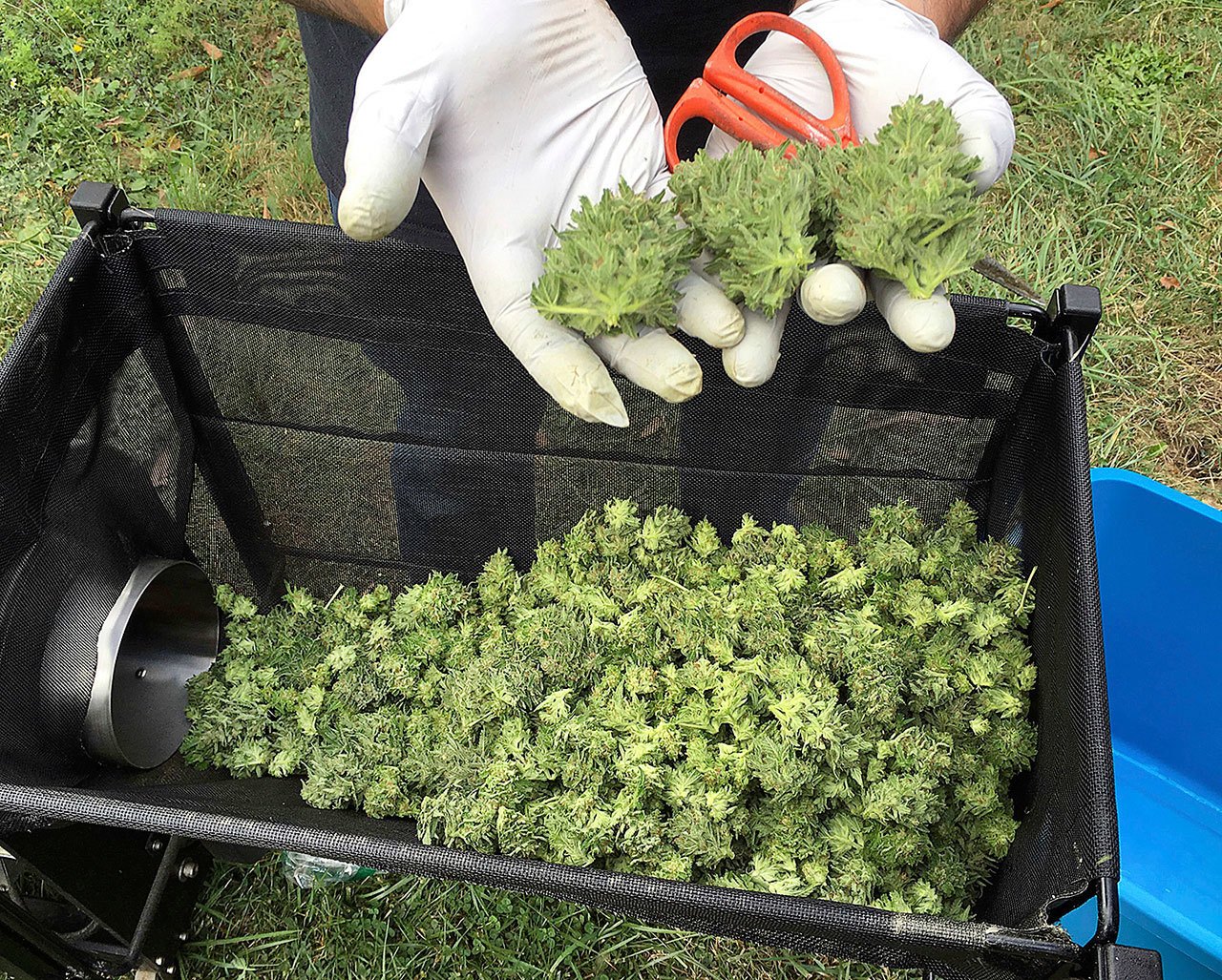Among the many statements Donald Trump made last year during the campaign were promises to crack down on the “bad hombres” crossing the U.S.-Mexico border and suggestions he’d take a hands-off approach to legalized marijuana.
While the statements weren’t made in tandem, they had a certain coherence: As has been widely reported, the legalization of marijuana in Washington and Colorado in 2012—and in several other states since—has disrupted the business models of Mexican drug cartels that had been making big bucks smuggling marijuana into the United States. However, while the Trump administration has moved forward with its border enforcement plans with gusto, it signaled yesterday that it could in fact take a more aggressive posture toward marijuana enforcement in states where recreational pot is legal—despite Trump’s campaign statements.
There’s ample evidence that, from a “bad hombre” perspective, this is bad policy.
According to Time, reporting in 2015, “U.S. Border Patrol has been seizing steadily smaller quantities of (marijuana), from 2.5 million pounds in 2011 to 1.9 million pounds in 2014…This fall appears to have little to do with law enforcement, however, and all to do with the wave of U.S. marijuana legalization.” The trend continued into 2015, with the Washington Post reporting that marijuana seizures dropped to 1.5 million pounds that year. “Two or three years ago, a kilogram of marijuana was worth $60 to $90,” a marijuana grower in Mexico told NPR in 2014. “But now they’re paying us $30 to $40 a kilo. … If the U.S. continues to legalize pot, they’ll run us into the ground.”
Of course, as Fusion notes, the cartels have other sources of revenue, and have become more reliant on them as the marijuana market has flagged. This includes cartels smuggling marijuana in to Mexico (perhaps Mexican president Enrique Pena Nieto should send in the troops). But the weakening illegal marijuana market seems to be a clear fulfillment of one of the promises made by legalization proponents, that being that by bringing pot into the light, it would choke out nefarious players from the market.
In a letter sent to the Attorney General Jeff Sessions, no friend of marijuana, earlier this month, Gov. Jay Inslee and state AG Bob Ferguson noted the connection between Washington’s legal marijuana and cartels. Were the federal government to shut down Washington’s regulated marijuana market, “It is far more likely that commerce in marijuana will simply move back underground, returning bumper profits to criminal groups, while once again depleting government resources.”
King County Sheriff John Urquhart tells Seattle Weekly that while his department does not prioritize drug enforcement, illegal marijuana still does have a presence in the county. However, he says that legal marijuana has not caused law enforcement issues (“the sky isn’t falling”) and agrees that it probably hurt any marijuana cartels that have a presence in the area.
“I’m sure they’re here,” he says of the cartels, “but you have to think (legalization) has cut down on the demand for illegal marijuana, because of these stores. It’s just logical. Even if we can’t see it, measure it.”
Urquhart noted the irony of threat of a marijuana crackdown coming just a day after the Trump administration said it would not enforce federal standards on transgender bathroom rights. “States rights for bathrooms, but the federal government is going to regulate marijuana. Man oh man.”
Yesterday, upon Sean Spicer’s comment in a press conference that America “will see greater enforcement” of marijuana laws, Ferguson said he was prepared to sue the Trump administration over the issue.
Spicer, it should be noted, did not mention the cartel connection to the marijuana debate. Instead, he pointed to entirely unsubstantiated connections between pot and the opioid epidemic. So it goes.
dperson@seattleweekly.com
This post has been updated with comments from Sheriff John Urqhuart.








